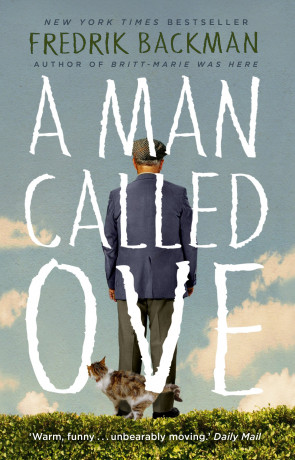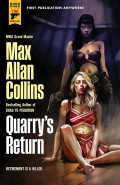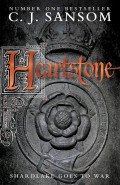A man called Ove
By Fredrik Backman

- A man called Ove
-
Author: Fredrik Backman
-
Publisher: Sceptre
- ISBN: 978-1444775815
- Published: May 2015
- Pages: 320
- Format reviewed: Paperback
- Review date: 24/02/2022
- Language: English
Never judge a person till you've walked a mile in their shoes, the late Terry Pratchett might add "because then you're a mile away, and have their shoes". It's something we do all the time, form snap judgements about people and situations, often based on first impressions. Perhaps it's a genetic legacy from a time when taking too long to decide if something was dangerous would mean it was the last time you got to make any decision at all. Even us readers, amongst the best of us, form snap judgements. "Never judge a book by it's cover" was not a phrase created without reason. "First impressions count" is a term coined from this issue, something that can make interviews and meetings with strangers more nerve-racking than they should be. This of course in turn can create the false impression that the interviewee is by nature a nervous person, or at least not see them in their best light. But we all do it, myself included - forming judgement on the aggressive driver who decides to see how close he can get to my car without touching the bumper, or the person at the ATM in front who seems to spend so long there that they must be playing a round of Pacman.
A man called Ove explores these snap judgements and offers a suggestion that we would do well to avoid them. It begins with Ove, who at 59 years old, finds himself in an Apple shop (the technological kind, not a greengrocers) trying to buy an "O-pad". Having never encountered such technology, he's somewhat grumpy about being completely out of his depth. The sales assistants, like so many in the Tech industry, assume that others have a certain level of knowledge about such things. Anyway, this opening scene is designed for the reader to form a snap judgement about Ove:
He drives a Saab. He's the kind of man who points at people he doesn't like the look of, as if they were burglars and his forefinger a policeman's torch.
He becomes agitated with ineptitude and annoyed when confronted with situations outside his control. Or at least that's what we are supposed to think when we first encounter Ove. But as the book progresses we begin to learn more about this cantankerous fella, and we realise that this snap judgement wasn't right at all. We learn that there are good reasons behind this behaviour and that Ove is so much more than we judged him to be, and that we shouldn't form opinion without context. I mean he is still grumpy and cantankerous, but has reasons for what he does.
Of course A man called Ove is a lot more that just a lesson in snap judgements. Narrated in the third person, it's a story that deals with grief, with loneliness, with change - both societal and personal and, as part of that, with growing older. I love how the author manages to describe what it's like to be an introvert, and indeed a person who struggles to deal with emotion or show outward signs of affection. Ove isn't one for making friends, incapable of making small talk and struggles to understand those who are different to him. He see's things in black and white, right and wrong with a strong moral compass that he extends to those he meets (one should drive a Saab, not a BMW). I can relate to that to a certain extent, although being in my 40's, I feel the author should have made Ove a little older, 59 doesn't seem that far away to me and certainly not old enough to not have much future. Regardless it offers an insight and explanation for why that person at the ATM appears to be playing Pacman.
The way the author deals with the subjects of loss and grief are clever, insightful and touching. A couple of years ago my Father was told he had stage 4 cancer and maybe a few months left, and I realised that there just wasn't enough time left to spend with him, to do the things together that I wanted to. As a family we tried to make sure he got to do as much as he could with the time remaining such as holidays, track-days in race cars and luxury journeys on trains, but there was only so much time left and you never realise this until that time has already passed.
“We always think there's enough time to do things with other people. Time to say things to them. And then something happens and then we stand there holding on to words like 'if'.”
I'm not going to say too much about the plot, as the book does a great job of introducing things gradually and I'd rather not spoil that. It's a book that has sold a lot of copies over the years though, and was made into a well received film a few years ago. As you hear many times in the publishing industry, it wasn't an overnight success and the author received so many rejections at first (it was his debut) that it wasn't until he'd written his second novel about the challenges of parenthood and got an offer to publish that book, this one was picked up. I would like to include this quote though, that is shown towards the end of the book.
Death is a strange thing. People live their whole lives as if it does not exist, and yet it's often one of the great motivations for living. Some of us, in time, become so conscious of it that we live harder, more obstinately, with more fury. Some need its constant presence to even be aware of its antithesis. Others become so preoccupied with it that they go into the waiting room long before it has announced its arrival. We fear it, yet most of us fear more than anything that it may take someone other than ourselves. For the greatest fear of death is always that it will pass us by. And leave us there alone.
It's difficult to imagine that the book has been translated from another language, or is set in another country. The writing is excellent, I connected with it easily and it has moved me emotionally more than most books. The serious subject matter is offset with a great deal of dry humour and that helps to elevate the narrative. It's quite different to a lot of other stories you might read. This isn't a book with high speed chases or graphic violence. It's not got an epic quest to save the world from disaster, or figuring out who killed who. Instead it's a much more human story, it's a conversation about us, our culture, how change can leave us behind, how grief can overcome us, and how there are good people out there, even if they don't always show it to others. Possibly even that person in front of you at the shop, struggling to understand just what it is they are trying to buy, someone that perhaps, we should show a little more understanding towards.
Written on 24th February 2022 by Ant .



